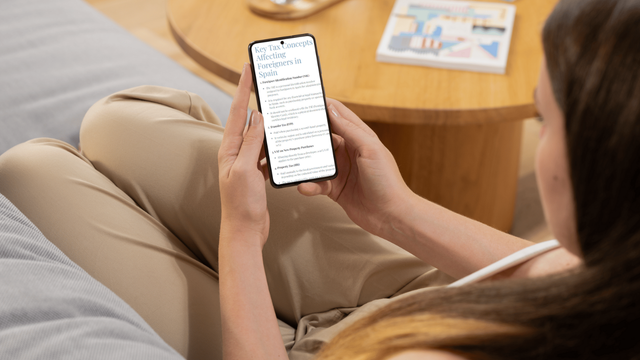Seven ‘extras’ that should be taken into account after agreeing the price of your property in Spain
Searching for a flat on property portals requires investing a lot of time. According to Tinsa data, it takes, on average, 10.6 months to sell a flat in Spain. Behind this statistic are hours of visits, telephone calls and deliberations for the buyers.
But it does not always take so long and there are some large cities where properties can go in a matter of days. Or even more quickly: in Madrid districts like Chamberí, some adverts have lasted barely 2 hours on the property portals as there are those that understand the market very well and go hunting for a bargain as soon as they spot one.
According to the experts, many of these quick buyers are investors with a deep understanding of the market. But, for the average buyer, there are several things to bear in mind before jumping in to put in a reserve on a flat or making a firm offer.
And it is worthwhile putting in a bit of work before making a commitment. It is usual to have studied prices in the area first to see if the property conforms to the market.
Minimum Information
But experts warn that, in the rush to secure a bargain, people sometimes forget to consult, or ask for, other essential data that are not always required for the signing of the purchase contract (for which other types of official documents are also required), but which may be crucial for the buyer
- Future urban development plans. Check with the Town Hall to see if any of these plans might affect your property or its surroundings. These may not be advertised in the news to the extent that you may hope as they may be at the public consultation stage or still being studied.
- Title deed and “nota simple” (extract) or land registry certificate. Indicates who is the owner, a description of the property and whether it has any kind of charges.
- Land registry. A simple consultation will let you know the exact dimensions of the property and its entire cadastral status.
- Residents’ association. Track down the president or the administrator of the premises and request a certificate to state that the property is up to date with community fees. It is also recommended that you familiarise yourself with the association’s financial situation and agreements reached at previous meetings to avoid surprise future outlay. Some issues may not have already been agreed but could be passed at upcoming meetings.
- Occupancy certificate. This document certifies whether a property meets the minimum conditions for habitation.
- Property Tax (IBI). Check that there are no outstanding payments and the cost of this tax.
- Last receipts. You must check that there are no monthly payments pending for utilities such as water, light or electricity.
- Technical Building Inspection (ITE). Many people forget to check this before committing to buying a flat. Some buildings do not pass this inspection, which normally equates to outgoings (and substantial expenditure) some time in the future.
- Energy efficiency certificate. This document is issued by a qualified technician and details the energy characteristics of the property and its rating.





